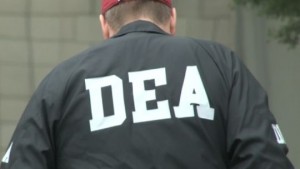LOS ANGELES
 A licensed physician and an alleged San Fernando Valley drug dealer were arrested today in connection with the death of actor Matthew Perry, who suffered a fatal ketamine overdose in October 2023, officials announced Thursday.
A licensed physician and an alleged San Fernando Valley drug dealer were arrested today in connection with the death of actor Matthew Perry, who suffered a fatal ketamine overdose in October 2023, officials announced Thursday.
According to court documents unsealed today, five defendants, including two doctors, have been charged in this matter. The defendants arrested today are charged in an 18-count superseding indictment returned on Wednesday with distributing ketamine to Perry during the final weeks of the actor’s life:
The defendants arrested today are charged in an 18-count superseding indictment returned on Wednesday with distributing ketamine to Perry during the final weeks of the actor’s life:
- Jasveen Sangha, 41, a.k.a. “The Ketamine Queen,” of North Hollywood; and
- Dr. Salvador Plasencia, 42, a.k.a. “Dr. P,” of Santa Monica.
Sangha and Plasencia are charged with one count of conspiracy to distribute ketamine.
The defendants are presumed innocent unless proven guilty.
Sangha is also charged with one count of maintaining a drug-involved premises, one count of possession with intent to distribute methamphetamine, one count of possession with intent to distribute ketamine, and five counts of distribution of ketamine.
The superseding indictment alleges that Sangha’s distribution of ketamine on October 24, 2023, caused Perry’s death.
Plasencia is charged with seven counts of distribution of ketamine and two counts of altering and falsifying documents or records related to the federal investigation.
“These defendants cared more about profiting off of Mr. Perry than caring for his well-being,” said U.S. Attorney Martin Estrada. “Drug dealers selling dangerous substances are gambling with other people’s lives over greed. This case, along with our many other prosecutions of drug-dealers who cause death, send a clear message that we will hold drug-dealers accountable for the deaths they cause.”
“Today we announce charges brought against the five individuals who, together, are responsible for the death of Matthew Perry,” said DEA Administrator Anne Milgram. “We allege each of the defendants played a key role in his death by falsely prescribing, selling, or injecting the ketamine that caused Matthew Perry’s tragic death. Matthew Perry’s journey began with unscrupulous doctors who abused their position of trust because they saw him as a payday, to street dealers who gave him ketamine in unmarked vials. Every day, the DEA works tirelessly with our federal, state, and local partners to protect the public and to hold accountable those that distribute deadly and dangerous drugs – whether they are local drug traffickers or doctors who violate their sworn oath to care for patients.”
The three other defendants, charged separately, are:
- Eric Fleming, 54, of Hawthorne, pleaded guilty on August 8 to one count of conspiracy to distribute ketamine and one count of distribution of ketamine resulting in death. Fleming admitted in court documents that he distributed the ketamine that killed Perry. He further admitted to obtaining the ketamine from his source, Sangha, and to distributing 50 vials of ketamine to Perry’s live-in personal assistant, Kenneth Iwamasa – half of them four days before Perry’s death.
- Kenneth Iwamasa, 59, of Toluca Lake, conspired with Sangha, Fleming, and Plasencia to illegally obtain ketamine and distribute it to Perry. Iwamasa, who pleaded guilty on August 7 to one count of conspiracy to distribute ketamine causing death, admitted to repeatedly injecting Perry with ketamine without medical training, including performing multiple injections on Perry on October 28, 2023—the day Perry died.
- Dr. Mark Chavez, 54, of San Diego, is a physician who has agreed to plead guilty to one count of conspiracy to distribute ketamine, Chavez admitted in his plea agreement to selling ketamine to Plasencia, including ketamine that he had diverted from his former ketamine clinic. Chavez also obtained additional ketamine to transfer to Plasencia by making false representations to a wholesale ketamine distributor and by submitting a fraudulent prescription in the name of a former patient without that patient’s knowledge or consent.
According to the superseding indictment unsealed Thursday in late September 2023, Plasencia learned that Perry, a successful actor whose history of drug addiction was well documented, was interested in obtaining ketamine.
Ketamine is a general anesthetic whose medical risks require a healthcare professional to monitor a patient who has just been given the drug.
After learning about Perry’s interest in ketamine, Plasencia contacted Chavez, who previously operated a ketamine clinic – to obtain ketamine to sell to Perry. In text messages to Chavez, Plasencia discussed how much to charge Perry for the ketamine, stating, “I wonder how much this moron will pay” and “Let’s [sic] find out.”

During September and October of 2023, Plasencia distributed ketamine to Perry and Iwamasa outside the usual course of professional practice and without a legitimate medical purpose on at least seven occasions. He did so by teaching Iwamasa how to inject Perry with ketamine, selling ketamine to Iwamasa to inject into Perry, leaving vials of ketamine with Iwamasa for self-administration, personally injecting ketamine into Perry without the proper safety equipment—including once inside a car parked in a Long Beach parking lot—and failing to properly monitor Perry after Plasencia injected Perry with the drug.
Plasencia knew that Iwamasa had never received medical training and knew little, if anything, about administering or treating patients with controlled substances.
 The superseding indictment also alleges that Plasencia conspired with Chavez about inventory, price, and availability of ketamine to sell to Perry and Iwamasa.
The superseding indictment also alleges that Plasencia conspired with Chavez about inventory, price, and availability of ketamine to sell to Perry and Iwamasa.
Chavez, in turn, sold Plasencia orally administered ketamine lozenges that he obtained after writing a fraudulent prescription in a patient’s name without her knowledge or consent, and lied to wholesale ketamine distributors to buy additional vials of liquid ketamine that Chavez intended to sell to Plasencia for distribution to Perry.
If convicted of all charges, Sangha faces up to life in prison.
Plasencia faces up to 10 years in federal prison for each ketamine-related count and up to 20 years in federal prison for each record’s falsification count.
When they are sentenced in their federal cases, Iwamasa and Fleming will face up to 15 years and 25 years, respectively.
Chavez has been charged in an informational proceeding pursuant to a plea agreement and will be arraigned on August 30.
At sentencing, Chavez will face up to 10 years in federal prison.
The Los Angeles Police Department, the Drug Enforcement Administration, and the U.S. Postal Inspection Service are investigating this matter.
Assistant U.S. Attorneys Ian V. Yanniello of the General Crimes Section and Haoxiaohan H. Cai of the Major Frauds Section are prosecuting this case.


 Plasencia sold the ketamine to Iwamasa despite being warned at least a week earlier that Perry’s ketamine addiction was spiraling out of control.
Plasencia sold the ketamine to Iwamasa despite being warned at least a week earlier that Perry’s ketamine addiction was spiraling out of control.